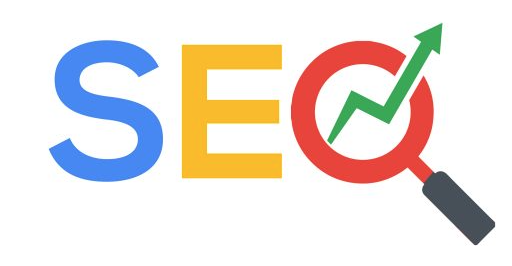having a strong online presence is crucial for businesses. Search Engine Optimization (SEO) plays a vital role in improving a website’s visibility and attracting organic traffic. There are various aspects of SEO that contribute to its effectiveness, including technical SEO, on-page SEO, and off-page SEO. In this article, we will delve into these three key components, exploring their definitions, significance, and how they work together to optimize a website for search engines.
Table of Contents
Technical SEO
Technical SEO refers back to the manner of optimizing the technical factors of a website to improve its visibility and rating on engines like google. Unlike on-page and off-page SEO, which focus on the content material and links, technical search engine optimization is concerned with the internet site’s infrastructure, code, and server configuration.
Technical SEO is critical as it facilitates search engines like Google to move slowly, index, and rank your internet site more efficiently. If your website has technical issues or is poorly optimized, engines like google might also have issues accessing and knowing your content, which can result in poor ratings, reduced visitors, and lost sales.
Here are some of the important thing components of technical search engine marketing:
A. Site structure and shape
Site architecture refers back to the way your internet site is organized and dependent. A nicely-established website makes it simpler for engines like Google to crawl and index your pages, which may enhance your website’s ranking and visibility.
Best practices for optimizing web page structure encompass:
- Creating a clean and logical hierarchy of pages
- Ensuring that every page is on the market from the homepage
- Using descriptive and significant URLs
- Avoiding replica content
B. Page speed and performance
Page speed and overall performance are important for supplying a terrific user revel in and improving your internet site’s ranking. Slow-loading pages can cause excessive soar quotes and decrease engagement, which may negatively impact your ratings.
Best practices for optimizing web page velocity and performance consist of:
- Minimizing file sizes, inclusive of pictures and motion pictures
- Enabling compression and browser caching
- Reducing the quantity of HTTP requests
- Using a content material transport community (CDN)
C. Mobile-friendliness
With the majority of net users now having access to websites on cell devices, it’s essential that your internet site is cell-friendly. A cellular-pleasant internet site gives a higher user revel in and can improve your website’s ranking and visibility.
Best practices for optimizing cellular-friendliness include:
- Using a responsive design that adapts to special screen sizes
- Optimizing pics and movies for cellular devices
- Making positive that buttons and links are easy to click on on mobile displays
- Avoiding the use of Flash or other technologies that won’t be supported on mobile gadgets
D. Schema markup
Schema markup is a shape of established data that provides extra context and records about your internet site to search engines like google. By using schema markup, you can assist engines like Google to apprehend the content on your website better, which can improve your ratings and visibility.
Best practices for imposing schema markup consist of:
- Using the right schema markup in your content material
- Including as a lot records as viable in the schema markup
- Validating the schema markup the usage of Google’s Structured Data Testing Tool
In summary, technical SEO is an important part of optimizing your website for search engines like google. By making sure that your internet site’s infrastructure, code, and server configuration are optimized for search engines like google and yahoo, you can enhance your rankings, visibility, and traffic. The key additives of technical search engine marketing consist of web page architecture and shape, web page speed and overall performance, mobile-friendliness, and schema markup.
By following quality practices for each of those components, you may optimize your website for search engines like google and yahoo and provide a better user experience.
On-Page SEO
On-web page search engine marketing involves optimizing diverse elements for your website to make them greater search engine friendly.
Here are the important thing additives of on-page search engine optimization:
A. Title tags
Title tags are HTML factors that specify the identity of a website. They appear in the browser tab and search engine consequences pages (SERPs) and provide a short evaluation of the content material at the web page. Title tags are one of the most crucial on-web page search engine optimization elements, as they are able to considerably effect click-on-via quotes (CTR) from seek effects.
Best practices for optimizing name tags encompass:
- Including the number one key-word for the page
- Keeping the name tag period between 50-60 characters
- Writing a descriptive and compelling title that correctly displays the content at the web page
B. Meta descriptions
Meta descriptions are HTML factors that offer a short summary of the content on a web site. They seem beneath the identify tag in search consequences and also are crucial for enhancing CTR. While meta descriptions do not at once impact rankings, they can influence how customers perceive the relevance and usefulness of a web page.
Best practices for optimizing meta descriptions consist of:
- Writing specific and compelling descriptions for each web page
- Keeping the meta description duration between a hundred and twenty-a hundred and sixty characters
- Including the number one key-word for the web page inside the meta description
C. Header tags (H1, H2, H3, and so on.)
Header tags are HTML elements used to shape content material on a webpage. They variety from H1 to H6, with H1 being the primary header and H6 being the smallest. Header tags help engines like google understand the structure and hierarchy of content on a page, which can enhance the relevance and usability of the web page for customers.
Best practices for optimizing header tags encompass:
- Using one H1 tag in step with web page and which includes the primary keyword for the web page in it
- Using H2 tags for subheadings and H3 tags for sub-subheadings
- Structuring content material in a logical and hierarchical way
D. Content
Content is one of the most crucial on-web page search engine optimization factors, as it offers price and relevance to users. Search engines search for incredible, applicable, and useful content material while rating pages in SERPs.
Best practices for optimizing content material encompass:
- Conducting key-word research to discover relevant and excessive-visitors key phrases
- Writing particular and splendid content material that satisfies user motive
- Including the primary keyword and related keywords inside the content material
- Using descriptive and meaningful URLs
E. Images
Images can enhance the visible appeal and personal experience of a website, but they can also impact on-web page SEO. Optimizing images for serps entails reducing the file size, adding alt textual content, and using descriptive report names.
Best practices for optimizing pix encompass:
- Using great and applicable photographs
- Reducing the report size to improve page load pace
- Adding alt text to describe the image
- Using descriptive document names that consist of the number one keyword
F. Internal links
Internal hyperlinks are links that factor to different pages to your website. They help engines like Google recognize the shape and hierarchy of your website and might improve the consumer’s enjoyment by providing extra context and facts.
Best practices for optimizing inner hyperlinks include:
- Using descriptive anchor text that appropriately reflects the content of the linked web page
- Linking to applicable and super pages on your website
- Ensuring that the connected pages are crawlable and indexable by search engines
In precise, on-page search engine optimization entails optimizing numerous factors to your website to improve seek engine scores and offer a higher user experience. The key components of on-page search engine optimization include title tags, meta descriptions, header tags, content material, images, and inner hyperlinks. By following best practices for each of these components, you can
Off-Page SEO
Off-page SEO refers to the activities that take location out of doors of your internet site to enhance your internet site’s visibility and ranking on search engines like google. Unlike on-web page SEO, which focuses on optimizing the content and shape of your website, off-page SEO is concerned with constructing your website’s authority and recognition via outside links, social media, and different channels.
Off-web page search engine optimization is vital due to the fact search engines use external elements along with hyperlinks, social signals, and logo mentions to decide the relevance and authority of your internet site. The extra terrific, relevant, and authoritative outside sources that hyperlink to your website, the much more likely search engines like google are to view your website as a precious and straightforward aid.
Here are some of the important thing additives of off-page search engine optimization:
A. Link building
Link constructing refers back to the procedure of obtaining outside hyperlinks in your internet site from different websites. The exceptional and relevance of those links are critical for improving your internet site’s authority and rating on search engines.
Best practices for link building consist of:
- Creating fantastic content that different websites will need to hyperlink to
- Reaching out to different websites and asking them to hyperlink to your content
- Guest posting on other websites and which includes links back for your internet site
- Participating in online communities and boards and including links for your internet site to your signature or profile
B. Social media
Social media can play a considerable position in off-web page search engine marketing by increasing brand cognizance, driving visitors to your website, and producing social indicators that search engines use to evaluate your website’s authority and relevance.
Best practices for social media include:
- Creating and retaining active profiles on relevant social media systems
- Sharing extremely good content material that is applicable in your target market
- Engaging with your fans and responding to comments and messages
- Using social media advertising and marketing to promote your content material and power site visitors to your internet site
C. Brand mentions
Brand mentions confer with the times while your brand or internet site is referred to on different websites or social media platforms without a link lower back for your website. While logo mentions do not have the same direct impact to your website’s authority and rating as external hyperlinks, they are able to still be treasured for constructing emblem cognizance and setting up your internet site’s reputation as a valuable useful resource in your industry.
Best practices for emblem mentions consist of:
- Monitoring mentions of your logo or internet site the use of gear like Google Alerts or Mention
- Engaging with customers who mention your logo or website and responding to any questions or remarks they’ll have
- Using logo mentions to discover potential hyperlink constructing opportunities and accomplishing out to web sites which have mentioned your emblem or internet site to request a hyperlink again on your internet site
In summary, off-web page SEO is a vital part of improving your internet site’s visibility and authority on seeps. By building top notch hyperlinks, engaging with your target audience on social media, and tracking and leveraging emblem mentions, you could enhance your website’s popularity and set it up as a treasured resource on your enterprise. The key additives of off-web page SEO encompass link constructing, social media, and emblem mentions. By following pleasant practices for each of those components, you could enhance your website’s off-web page SEO and force greater site visitors and revenue on your internet site.




